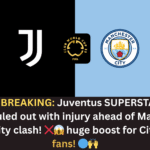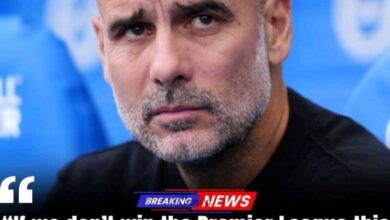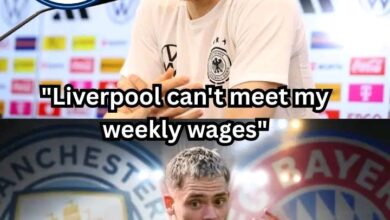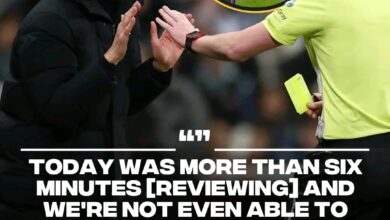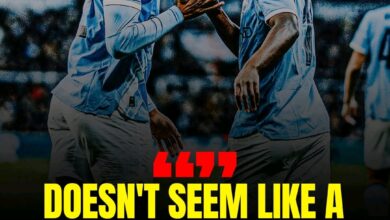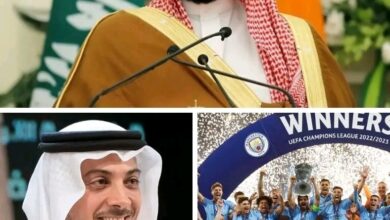Ederson reacts to Ilkay Gundogan’s message amid ‘Man City exit’ claim
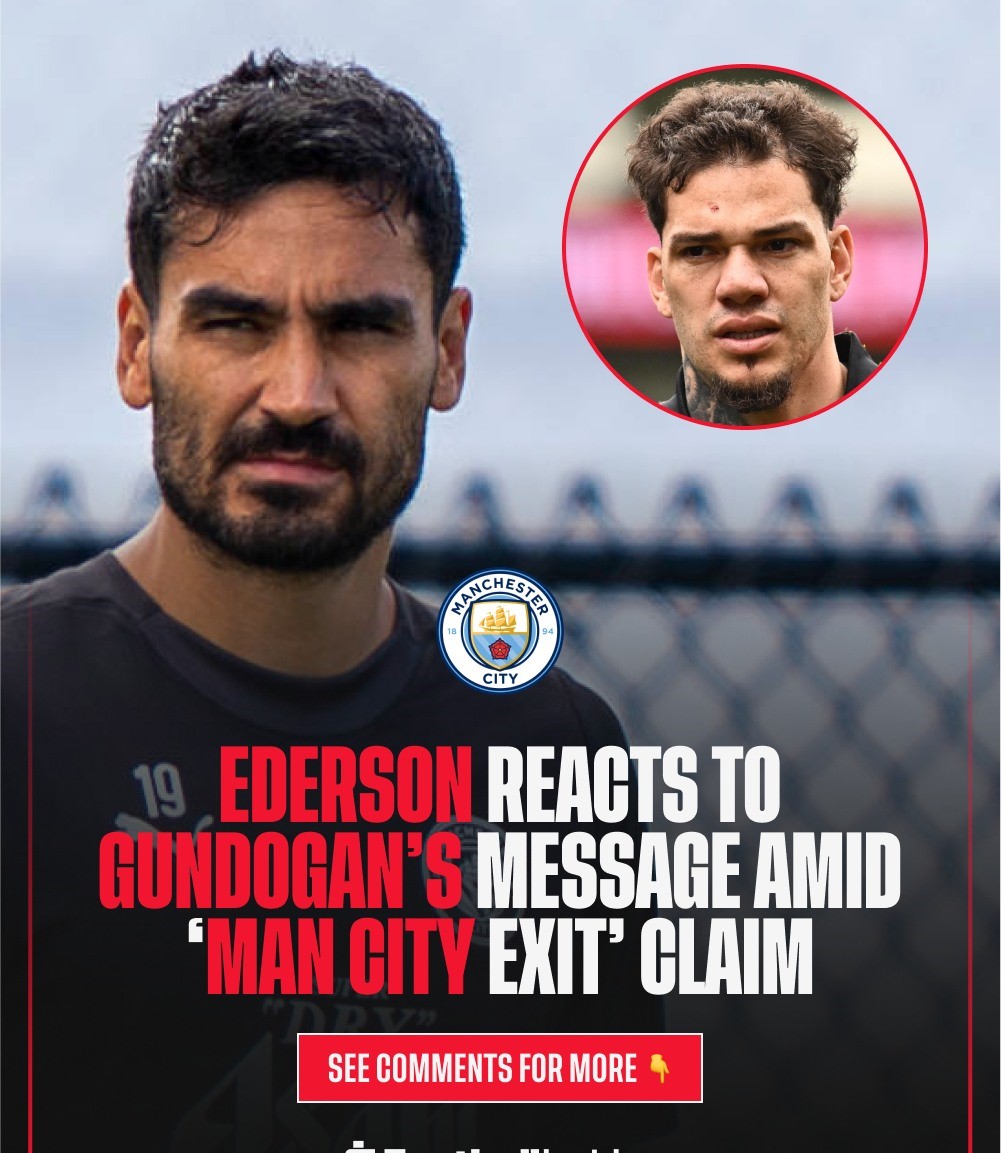
The football world continues to buzz with speculation surrounding Ilkay Gundogan’s future at Manchester City, as the German midfielder finds himself in an increasingly precarious position at the Etihad Stadium. Despite maintaining a positive public facade and demonstrating unwavering professionalism, the 34-year-old’s situation has become one of the most intriguing storylines of the current transfer window, with his potential departure representing a significant shift in Pep Guardiola’s squad dynamics.
The Club World Cup Performance and Team Dynamics
Manchester City’s commanding 5-2 victory over Juventus on June 26th showcased the club’s continued dominance on the global stage, securing their passage to the Club World Cup’s last 16 with a performance that highlighted both their attacking prowess and tactical versatility. The match served as a microcosm of the broader themes surrounding the club’s current trajectory, with several key players delivering standout performances that underscored the depth and quality within Guardiola’s squad.
Rayan Ait-Nouri emerged as the standout performer of the evening, delivering a masterclass that demonstrated why he has become such an integral part of City’s setup. His ability to contribute both defensively and offensively has made him an invaluable asset, and his performance against Juventus was a testament to his growing maturity and tactical understanding under Guardiola’s guidance. The Algerian defender’s evolution has been remarkable, transitioning from a promising youngster to a key component of one of the world’s most successful teams.
The goalscoring exploits of Phil Foden, Savinho, Jeremy Doku, and Erling Haaland painted a picture of a team with multiple attacking threats, each capable of changing the complexion of any match. Foden’s continued development as a creative force has been particularly impressive, with his ability to operate in various positions across the front line making him virtually undroppable. His goal against Juventus was yet another example of his clinical finishing and intelligent movement, qualities that have made him one of the most reliable performers in Guardiola’s system.
Savinho’s contribution further emphasized the Brazilian’s growing importance to the team’s attacking structure. His pace, trickery, and ability to create chances from seemingly impossible positions have made him a fan favorite and a nightmare for opposing defenders. The goal against Juventus demonstrated his composure in front of goal, a quality that has developed significantly since his arrival at the club.
Jeremy Doku’s involvement in the scoring highlighted the Belgian winger’s unique skill set and his ability to provide moments of magic when the team needs them most. His dribbling ability and directness have added a new dimension to City’s attacking play, offering Guardiola tactical flexibility in how he approaches different opponents. The goal against Juventus was a perfect example of his ability to exploit spaces and create opportunities through individual brilliance.
Perhaps most significantly, Erling Haaland’s goal represented a historic milestone, marking his 300th career goal at just 25 years of age. This achievement underscored the Norwegian striker’s exceptional talent and his importance to Manchester City’s future ambitions. Haaland’s goal-scoring record has been phenomenal since his arrival, and reaching this landmark so early in his career speaks to his incredible consistency and finishing ability. His partnership with the creative players around him has been instrumental in City’s success, and his continued development suggests even greater achievements lie ahead.
Gundogan’s Diminishing Role and Tactical Considerations
However, amid these celebrations of attacking excellence, Ilkay Gundogan’s absence from the starting lineup told a different story. The German midfielder’s exclusion from the first XI against Juventus was not an isolated incident but rather part of a concerning pattern that has emerged throughout the season. Tijjani Reijnders’ continued preference in the midfield has sent clear signals about Guardiola’s current tactical priorities and his vision for the team’s future.
Reijnders’ emergence as a key figure in City’s midfield has been one of the season’s most significant developments. The Dutch midfielder’s energy, pressing intensity, and ability to contribute both defensively and offensively have made him an ideal fit for Guardiola’s system. His performances have demonstrated the kind of dynamism and physicality that modern football demands, qualities that have become increasingly important in the Premier League’s high-intensity environment.
The tactical shift away from Gundogan represents more than just a simple personnel change; it reflects a broader evolution in how Guardiola views his team’s needs and priorities. The German’s traditional strengths – his passing range, tactical intelligence, and ability to control the tempo of matches – remain valuable assets, but the modern game’s emphasis on physical attributes and defensive contribution has placed different demands on midfield players.
Gundogan’s situation has been further complicated by the depth of quality in City’s midfield options. The emergence of younger players with different skill sets has created internal competition that has naturally pushed some established players down the pecking order. This internal competition, while healthy for the squad’s overall development, has inevitably created difficult decisions for Guardiola regarding team selection and squad management.
The Galatasaray Interest and Transfer Speculation
The speculation surrounding Gundogan’s potential move to Galatasaray has added another layer of complexity to an already intricate situation. The Turkish giants’ interest in the German midfielder represents more than just a simple transfer opportunity; it could provide Gundogan with the chance to play a central role in a competitive environment where his experience and leadership qualities would be highly valued.
Galatasaray’s pursuit of Gundogan makes perfect sense from multiple perspectives. The Turkish club’s ambitions in both domestic and European competition would be significantly enhanced by the addition of a player of Gundogan’s caliber and experience. His ability to operate in various midfield roles, combined with his Champions League experience and understanding of high-level football, would make him an invaluable addition to their squad.
From Gundogan’s perspective, a move to Galatasaray would offer the opportunity to be a key player once again, potentially serving as a catalyst for both personal and professional rejuvenation. The chance to play regular first-team football, combined with the opportunity to experience a different football culture and competitive environment, could provide the motivation and challenge that every professional footballer craves at this stage of their career.
The financial aspects of any potential deal would also be significant for all parties involved. Galatasaray’s willingness to invest in a player of Gundogan’s stature demonstrates their serious intent to compete at the highest level, while Manchester City would benefit from removing a significant salary from their wage bill while potentially receiving a transfer fee for a player who might otherwise leave for free at the end of his contract.
Squad Reshaping and Strategic Planning
Manchester City’s approach to squad management under Pep Guardiola has always been characterized by careful planning and strategic thinking. The potential departure of Gundogan represents part of a broader squad reshaping process that aims to balance experience with youth, while maintaining the competitive edge that has made City so successful in recent years.
The club’s willingness to consider moving on senior players like Gundogan reflects a pragmatic approach to squad building that prioritizes long-term sustainability over short-term sentiment. This strategy has been evident in previous transfer windows, where City have shown they are willing to make difficult decisions about beloved players if it serves the greater good of the team’s development.
The reshaping process involves more than just individual players; it encompasses a comprehensive evaluation of the squad’s age profile, wage structure, and tactical requirements. Gundogan’s situation, while significant, is part of a larger puzzle that includes decisions about multiple players and positions. The club’s ability to successfully navigate these transitions while maintaining their competitive standards will be crucial to their continued success.
Football Insider’s previous reporting about Gundogan being among several senior players who could potentially leave the club highlights the systematic nature of City’s approach to squad management. This suggests that the club has developed a clear strategy for managing the transition between different generations of players, ensuring that the team’s competitive standards are maintained while creating opportunities for younger players to develop and establish themselves.
The Social Media Response and Public Perception
Despite the uncertainty surrounding his future, Gundogan’s response to the Juventus victory demonstrated the professionalism and positive attitude that have characterized his entire career. His Instagram post celebrating the team’s “brilliant victory” and encouraging his teammates with “Let’s go lads. Last 16!” showed a player who remains fully committed to the team’s success, regardless of his personal circumstances.
The social media interaction that followed Gundogan’s post was particularly telling, with teammates Phil Foden, Rayan Cherki, and Ederson among those showing their support. This response from his colleagues suggests that whatever tactical decisions are being made regarding team selection, Gundogan remains a respected and valued member of the squad on a personal level. The camaraderie displayed in these interactions reflects the strong team spirit that has been crucial to City’s success under Guardiola.
The public nature of Gundogan’s positive response also serves multiple purposes. It demonstrates to fans, teammates, and potential suitors that he maintains a professional approach to his situation, while also showing that he remains focused on contributing to the team’s success whenever called upon. This attitude is likely to be appreciated by Guardiola and the club’s management, as it avoids any potential disruption to team harmony during a crucial period of the season.
Historical Context and Career Trajectory
To fully understand the significance of Gundogan’s current situation, it’s important to consider his remarkable journey with Manchester City. His original departure to Barcelona in 2023 on a free transfer represented the end of what many considered to be a successful chapter in his career. The German midfielder had been instrumental in many of City’s achievements, contributing to multiple Premier League titles and playing a crucial role in the club’s tactical evolution under Guardiola.
The surprise nature of his return to City just twelve months later demonstrated the complex dynamics that can exist in modern football. His two-year deal represented both an opportunity for personal redemption and a chance for the club to benefit from his experience and leadership qualities. However, the expectations surrounding his return have proven to be more challenging to fulfill than initially anticipated.
The contrast between Gundogan’s previous tenure at City and his current situation highlights how quickly circumstances can change in professional football. During his first spell at the club, he was often considered one of the most important players in Guardiola’s system, with his ability to dictate the tempo of matches and create opportunities for his teammates making him virtually indispensable. His current reduced role represents a significant shift in how he is perceived within the team’s hierarchy.
Fan Reactions and Critical Analysis
The reaction from Manchester City supporters to Gundogan’s situation has been mixed, reflecting the complex emotions that arise when popular players face uncertain futures. Many fans have been critical of his performances since his return, questioning whether his best days are behind him and whether Guardiola’s continued faith in him is justified. These criticisms, while sometimes harsh, reflect the high standards that City supporters have come to expect from their team.
Some supporters have pointed to specific performances where Gundogan appeared to lack the energy and dynamism that characterized his earlier years at the club. The physical demands of the Premier League, combined with the intensity of Guardiola’s tactical system, require players to maintain exceptional fitness levels and mental sharpness. Questions about whether Gundogan can still meet these demands have become increasingly prevalent among the fanbase.
However, other supporters have defended Gundogan, pointing to his experience, leadership qualities, and tactical intelligence as assets that remain valuable to the team. They argue that his reduced role may be more about tactical evolution than individual decline, and that he still has contributions to make when called upon. This perspective emphasizes the importance of squad depth and the value of having experienced players available for crucial moments.
The Captaincy Situation and Leadership Dynamics
Former City financial advisor Stefan Borson’s observation about Gundogan’s notable absence from the club’s latest captaincy list has added another dimension to the speculation surrounding his future. The captaincy at Manchester City represents more than just a ceremonial role; it reflects the club’s assessment of leadership qualities, commitment levels, and long-term planning considerations.
The exclusion from the captaincy list, if accurate, would represent a significant shift in how the club views Gundogan’s role within the squad hierarchy. Traditionally, experienced players like Gundogan would be natural candidates for leadership positions, given their understanding of the club’s culture, tactical systems, and competitive demands. His absence from such considerations suggests that the club may be planning for a future that doesn’t include him as a central figure.
This development also raises questions about the club’s succession planning and how they are preparing for the eventual departure of their current generation of leaders. The identification and development of future captains is a crucial aspect of long-term squad management, and the decisions made in this regard often provide insights into the club’s strategic thinking.
Financial Considerations and Squad Economics
The financial implications of Gundogan’s situation extend beyond simple transfer fees and wage considerations. His current contract status, age, and market value all factor into the club’s decision-making process regarding his future. The economics of modern football demand that clubs make strategic decisions about player retention that balance sporting considerations with financial sustainability.
Gundogan’s experience and reputation still command respect in the transfer market, which means that any potential departure could generate meaningful revenue for Manchester City. This financial consideration becomes particularly important when viewed in the context of Financial Fair Play regulations and the club’s ongoing need to balance their books while maintaining competitive squads.
The wage structure implications of retaining or releasing Gundogan also play a crucial role in the club’s planning. His salary, while justified by his contributions during his previous tenure, represents a significant investment that must be weighed against current performance levels and future potential. The club’s ability to make rational decisions about these investments will be crucial to their long-term financial health.
Looking Forward: Potential Outcomes and Implications
As the transfer window progresses, several scenarios could unfold regarding Gundogan’s future. A move to Galatasaray represents the most frequently discussed possibility, offering benefits to all parties involved. Such a transfer would provide Gundogan with the opportunity to play a central role in a competitive environment, while allowing Manchester City to free up resources for other strategic priorities.
Alternatively, Gundogan could choose to remain at City and fight for his place in the team, accepting a reduced role while contributing as a squad player. This scenario would require careful management from both the player and the club to ensure that expectations are aligned and that his presence doesn’t become a source of frustration or disruption.
The resolution of Gundogan’s situation will likely have broader implications for Manchester City’s squad planning and tactical approach. His departure would necessitate adjustments to the team’s dynamics and potentially create opportunities for younger players to establish themselves in the first team. The club’s ability to manage these transitions smoothly will be crucial to maintaining their competitive standards.
Conclusion
Ilkay Gundogan’s situation at Manchester City represents a fascinating case study in modern football dynamics, encompassing elements of squad management, tactical evolution, and personal career decisions. His positive public demeanor in the face of uncertainty demonstrates the professionalism that has characterized his entire career, while the speculation surrounding his future reflects the complex realities of elite football.
The German midfielder’s journey from key player to potential departure candidate illustrates how quickly circumstances can change in professional football. His ability to maintain focus and contribute positively to the team’s success, regardless of his personal situation, speaks to his character and professional integrity.
As Manchester City continues to evolve under Pep Guardiola’s guidance, the decisions made regarding players like Gundogan will shape the club’s future trajectory. The balance between loyalty to past contributors and strategic planning for future success represents one of the most challenging aspects of modern football management.
Ultimately, Gundogan’s story serves as a reminder that football careers are finite, and that even the most successful players must eventually face transitions and new challenges. His handling of the current situation, characterized by professionalism and positivity, provides a model for how such transitions can be managed with dignity and grace.
The coming weeks will likely provide clarity on Gundogan’s future, but regardless of the outcome, his contributions to Manchester City’s success will be remembered fondly by supporters and teammates alike. His potential departure would mark the end of an era, but also the beginning of a new chapter in both his career and the club’s ongoing evolution.


